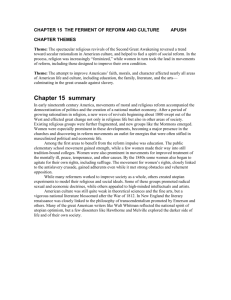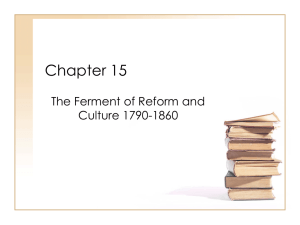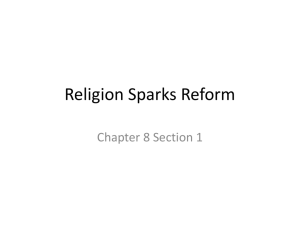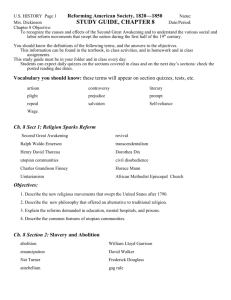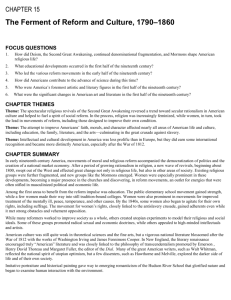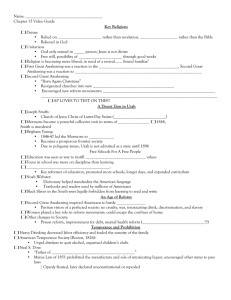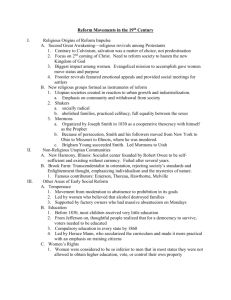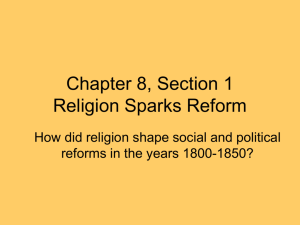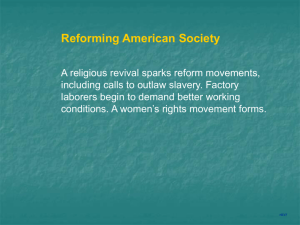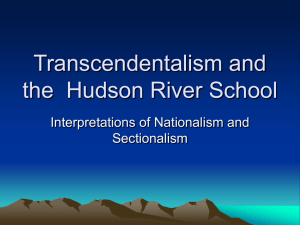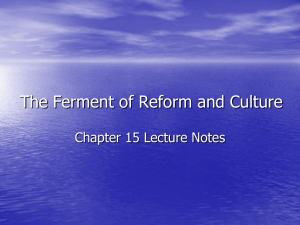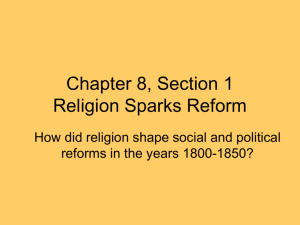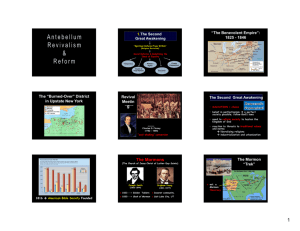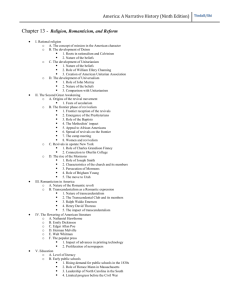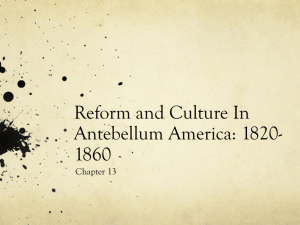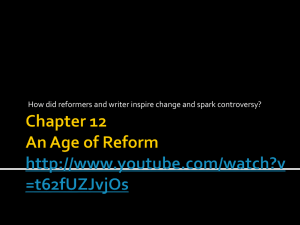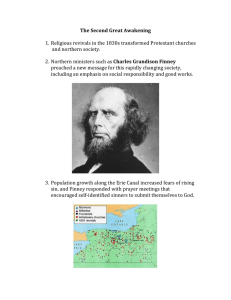Chapter 16
advertisement
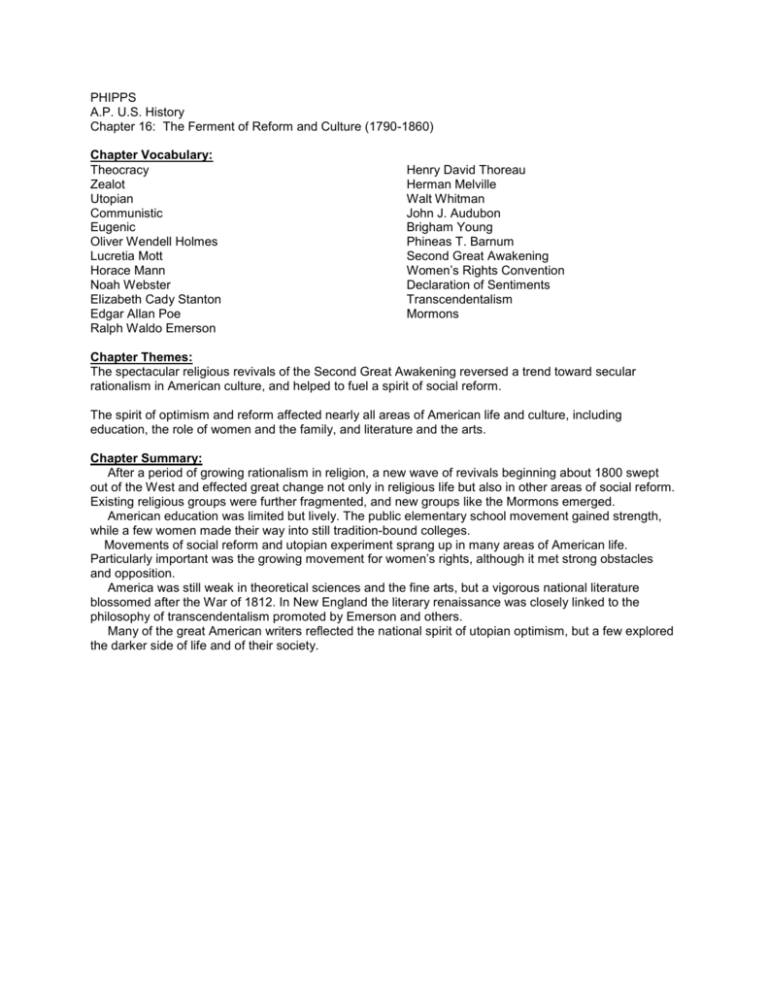
PHIPPS A.P. U.S. History Chapter 16: The Ferment of Reform and Culture (1790-1860) Chapter Vocabulary: Theocracy Zealot Utopian Communistic Eugenic Oliver Wendell Holmes Lucretia Mott Horace Mann Noah Webster Elizabeth Cady Stanton Edgar Allan Poe Ralph Waldo Emerson Henry David Thoreau Herman Melville Walt Whitman John J. Audubon Brigham Young Phineas T. Barnum Second Great Awakening Women’s Rights Convention Declaration of Sentiments Transcendentalism Mormons Chapter Themes: The spectacular religious revivals of the Second Great Awakening reversed a trend toward secular rationalism in American culture, and helped to fuel a spirit of social reform. The spirit of optimism and reform affected nearly all areas of American life and culture, including education, the role of women and the family, and literature and the arts. Chapter Summary: After a period of growing rationalism in religion, a new wave of revivals beginning about 1800 swept out of the West and effected great change not only in religious life but also in other areas of social reform. Existing religious groups were further fragmented, and new groups like the Mormons emerged. American education was limited but lively. The public elementary school movement gained strength, while a few women made their way into still tradition-bound colleges. Movements of social reform and utopian experiment sprang up in many areas of American life. Particularly important was the growing movement for women’s rights, although it met strong obstacles and opposition. America was still weak in theoretical sciences and the fine arts, but a vigorous national literature blossomed after the War of 1812. In New England the literary renaissance was closely linked to the philosophy of transcendentalism promoted by Emerson and others. Many of the great American writers reflected the national spirit of utopian optimism, but a few explored the darker side of life and of their society.
